Jet Boat vs Propeller Boat: What’s The Difference?
Most boats on the water are propelled by one of two main systems – jet propulsion or propeller propulsion. Jet boats use an impeller pump to draw water in before forcing it out in a high velocity jet that moves the boat forward. Propeller driven boats use a propeller to push the water away from it, moving the boat as a result. Each type has some distinct advantages and disadvantages when you compare the two in terms of how they affect your boating experience overall.
How a Jet Drive Works
Any jet boat, including jet skis and other personal watercraft, have an intake at the bottom of the boat in the water. An impeller pump works like the reverse of a propeller and, instead of pushing water away, it draws that water into the drive. The water is then forced out of a nozzle at the rear of the boat at high pressures thanks to the jet pump. This allows for some physics to come into play and, in specific, Newton’s Third Law.
In simple terms, Newton’s Third Law of Motion is the one that states for every action there is an equal and opposite reaction. In the case of a jet engine you have a high powered jet of water being pushed out of the boat. The equal and opposite reaction sees the boat being pushed forward as a result.
The steering is linked to the nozzle that directs the jet out of the rear of the boat. When the operator turns to the left or right the nozzle moves accordingly, allowing the vessel to turn in the desired direction.
While jet propulsion is great at moving a boat forward it has severe limitations for going in reverse because the engine isn’t designed to work backwards. Instead, something called a bucket will drop over the nozzle when you want to go in reverse and this redirects the jet of water back to the front of the boat. The upside is that you can very quickly switch from forward to reverse in a jet boat. But the downside is that it’s not as powerful any longer so reverse in a jet boat will not work as well as reverse in a prop boat.
How a Propeller Works
Traditional propeller boats work by use of a gasoline, diesel or electric powered engine that is connected by a shaft to a propeller that is placed in the water either behind the boat, as is the case with an outboard motor, or below the boat with stern drives or an inboard.
As the motor runs in a propeller boat, torque from the engine is converted into thrust. The propeller spins and the three or four blades of the propeller rotate in the water. The angle in the blades catches the water in a way that allows the water to be pulled in and then pushed behind the blades creating a pressure differential. This gives the boat both lift and thrust and propels the boat forward.
The fewer blades the propeller has the more efficient it will be but the less powerful it will be. Likewise, more blades make a powerful but less efficient engine overall. If a propeller blade is damaged and ends up dented or bent it will greatly impact the ability of the whole propeller to work, sometimes rendering it useless.
Types of Jet Drive Boats
In general, jet powered boats are less common than prop boats. This is due to a couple of factors but chief among them the fact that propeller technology has been around far longer and it’s the standard by which boats operate.
For many people, jet skis and personal watercraft seem like the only kind of jet boats, but there is actually a wide range of craft that use jet propulsion these days. These include:
- Cuddy cabins
- Bowriders
- Runabouts
- Jon boats
- Skiffs
- Fishing Boats
- Tow-sport boats
There are really few types of boats that can’t, at least in principle, operate with a jet drive engine. Larger versions, like ones used for tow-ports, will typically have two jet drives instead of one to give them the power they need.
Types of Prop Boats
Nearly every kind of boat that has an engine to propel it forward is a prop boat, so the list of boats that aren’t prop boats is a lot easier to make. Essentially, any boat that uses manual or wind power alone isn’t going to b a prop boat, but even then you can still get versions that have the option to use a motor.
Things like a personal watercraft are not and cannot be propeller-driven, but nearly every other kind of boat can be.
Advantages of Jet Drives vs Prop Drives
Many boaters seem to prefer a propeller but there are some advantages to using a jet boat.
- Shallow draft: One of the biggest advantages to a jet boat is that the drive is all internal. That means a jet boat is better suited for shallow water compared to a prop boat. There’s no risk of the prop hitting rocks or the bottom of the water because jet engines don’t extend downward like that, so you can use it in more places. That means fishing in many rivers can be a lot easier and you’ll find more areas opening up to you as a result.
- Proximity: Because the working parts of the jet drive are inside the boat itself, there’s no risk of getting injured by a spinning propeller blade. This makes using things like a swim platform or having water skiers around a jet boat safer than they would be around a prop boat.
- Cost: I’ll cover this in more detail in its own section but a jet boat is typically a better value than a prop boat of the same size.
- Speed: They call them jet boats and they live up to the visual that comes with it. Jet boats can accelerate much faster than a prop boat can. Once they get up to speed, a jet boat will typically manage to maintain a slightly higher speed as well. That said, this very much depends on the type of motor you’re using.
- Space: A jet drive engine is all housed internally so it’s not going to take up the same kind of space that a prop engine will. They’re also lighter which can affect the performance of your boat.
- Trailering: Because the engine in a jet boat is lighter and also isn’t hanging out in the way like a prop engine might, then trailering a jet boat can be an easier process for you.
- Winterizing: A jet drive doesn’t require the same winterizing process that a prop engine will. Like your car engine, you need to keep antifreeze running through your prop’s engine and winterizing it is important lest that engine block freeze and crack. You don’t need to fuss over a jet drive nearly so much to get it ready for the cold weather.
Disadvantages of Jet Drives vs Prop Drives
There are some problems with jet drives that tend to hold them back for some boaters.
- Reverse: As I mentioned earlier, the process of reversing a jet boat is a little different than a prop boat. You are not getting a lot of good speed as a result and sometimes it’s just easier to turn 180. Prop boats can manage reverse much more easily.
- Maneuvering: It can be a little harder to maneuver a jet boat in choppy water than a pop boat. Likewise, the entire process of maneuvering a jet boat does take a little bit of time to get the hang of. That’s not necessarily a disadvantage but to those who are used to only using prop boats, the difference can be frustrating. Also, at lower speeds and especially when trying to dock in tight spaces, the lack of a rudder can become a problem.
- Fuel Efficiency: I’ll detail this a little more shortly, but a jet drive engine is not going to offer the same kind of fuel economy as a prop boat.
- No Trim: You can’t trim the engine of a jet drive so that means if you have more passengers or more gear on board you can’t compensate for the effect they cause which can result in the boat performing worse. The bow rise on a jet boat should be low enough already so that this doesn’t matter but under some conditions it can become an issue.
- Performance: Some jet boats are not well suited to things like watersports but larger ones can manage very well, producing speed and wake suitable for wakeboarding and waterskiing. In general, however, a prop boat will produce a better wake for watersports.
- Power: As cool as a jet boat may look on the water, they tend to not have the power of a similarly sized prop boat.
- Maintenance: It’s not fun to clean a prop if it gets snagged with fishing line or weeds, but it can be a much worse process trying to clean your impeller if it sucks in too much sand or weeds.
- Noise: As loud as an outboard engine tends to be, jet boats can get even louder sometimes.
Jet Boats vs Prop Boat Costs
Despite the fact that a jet boat sounds vaguely futuristic and the technology is newer than prop boats, jet boats tend to be a little bit cheaper overall, somewhere between $10,000 and $30,000 depending on style. This is a hard on to gauge, however, as you can’t typically compare two identical boats that only differ in terms of jet drive vs prop since they aren’t really made that way. So you have to look at boats that are relatively similar in terms of length and features and then determine which is a better value.
A center console prop-drive boat around 26 feet might cost you $115,000 while a similar jet drive vessel would be around $70,000 to $80,000.
Even when looking at performance boats for things like wakeboarding and waterskiing, a jet boat will likely be cheaper than a prop boat offering similar features. You could find some jet boats more than $50,000 cheaper than their prop counterparts.
Sticker price is just one cost to consider, however.
Jet vs Prop: Fuel Efficiency
While a jet boat may offer an advantage in cost right off the bat, fuel costs will be higher for a jet boat overall. At cruising speeds, if you compare a 255 hp jet boat with a 220 hp Mercury sterndrive, the jet boat consumes 8.2 gallons per hour while the sterndrive only uses 4.7 gallons per hour. At high speeds the jet boat will be using 19.6 gallons per hour compared to 11.1 gallons per hour with the sterndrive engines.
Depending on how much you plan to be using a jet boat, you could end up paying a lot more in the long run due to fuel costs, but it really depends on how much it cost initially and how you use it.
Which is Better: Jet Drives or Props?
So, when it comes down to choosing which boat has the better propulsion system, you need to define first what you mean by that. A jet boat is better at navigating shallow waters so if you want to fish in conditions like that, a jet boat could be better for you. Also, if you’re worried about your budget and want a boat that costs substantially less than a similar prop boat, then a jet boat is another great option.
If you’re looking at long term finances, then a prop boat may be a better choice for you. The cost of fuel adds up over the years and a prop boat will be cheaper in that regard.
Also worth noting is that, because prop boats are so much more common, you’re going to have way more options with prop boats than you will with jet boats. This is true for both new models and also used models. There’s just a lot more out there in terms of props.
In terms of maintenance, this is one that’s hard to score for either boat. Maintenance of a jet boat motor can be harder to do and more expensive but if you understand how to do it yourself it can offset that cost. It can also be easier since they need less maintenance in general. Without that big, exposed prop and the larger number of moving parts there’s less chance of the engine needing more attention. But by the same token, more people are apt to know how to maintain a prop boat engine and replacing one can be faster and cheaper as well if it comes to that.
For individual use, there’s a reason that jet skis were invented and maintain a high degree of popularity. There really is no prop equivalent to a jet ski in terms of the fun and speed you can enjoy when using the boat by yourself. You can try to compare it to a little fishing boat or jon boat with an outboard but it’s just not the same at all.
Boat manufacturers create both kinds of boats, propeller driven boats and those with outboard jets, for recreational boating, fishing and cruising.
The Bottom Line
A prop boat makes use of a propeller to push itself forward through the water, achieving good speeds and good fuel efficiency. A jet boat uses jet propulsion and can be cheaper overall while giving you access to shallower bodies of water. Both boats offer a number of advantages and some disadvantages when compared head to head, so the best option is to really consider what you want to get out of your boat before deciding which kind might be best for you. In general, however, both perform really well and neither stands out as a superior type of vessel.
Categories: Boats
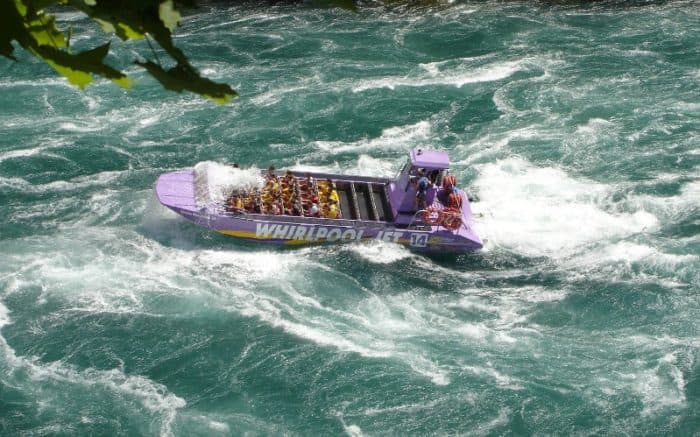

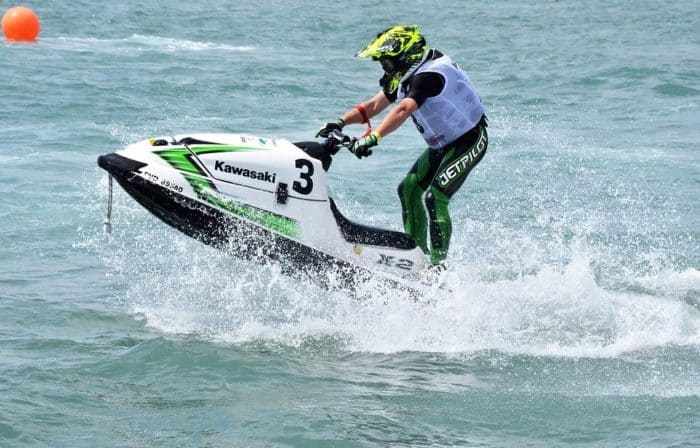
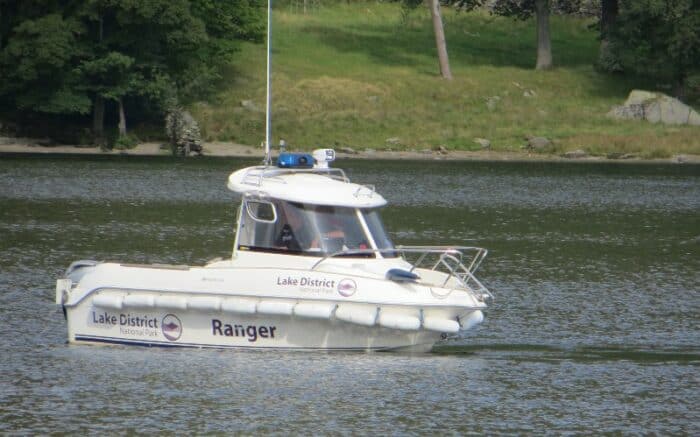
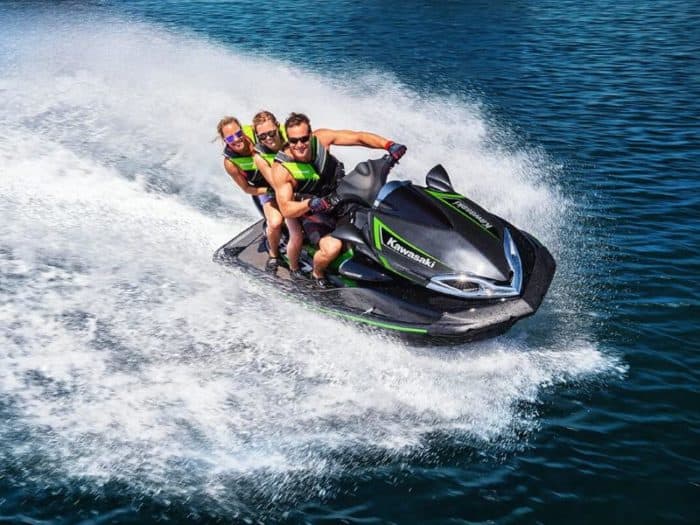

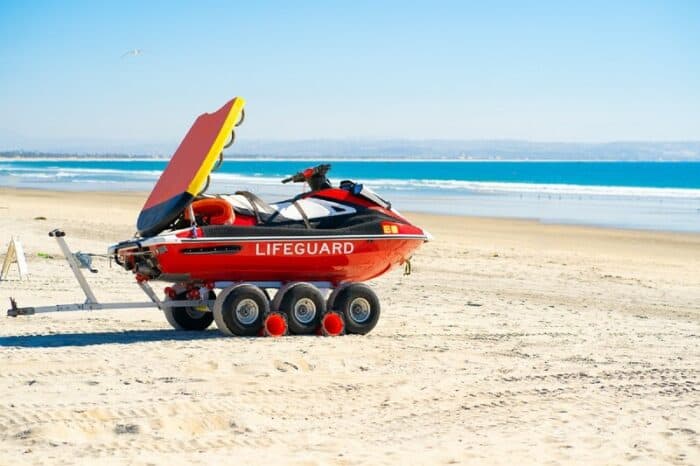
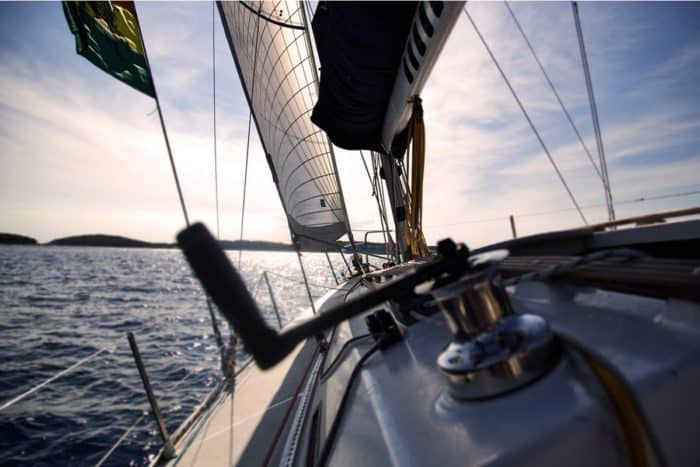

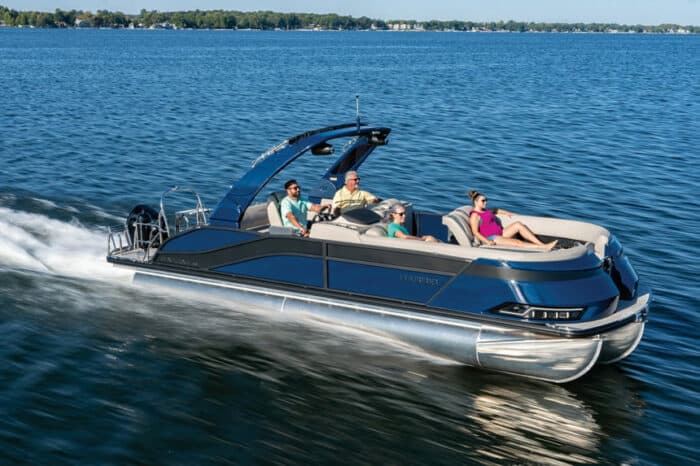
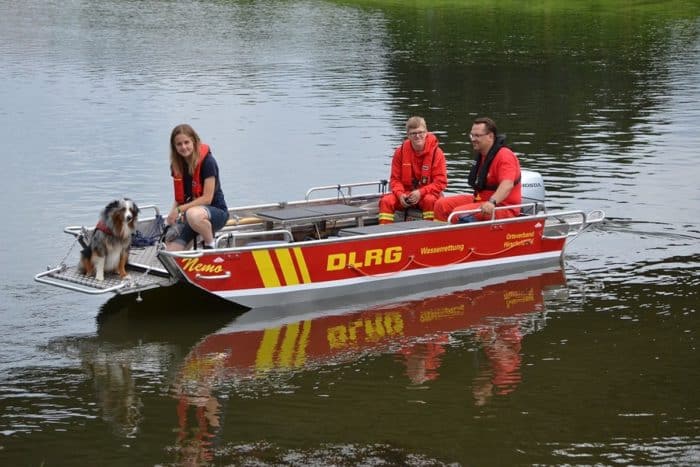




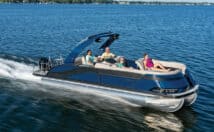
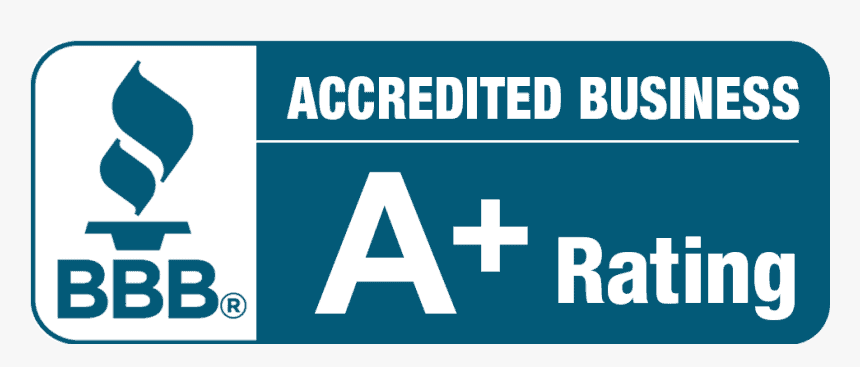


2 Comments
Arthel B Martin on December 21, 2022
I really believe “The Switch” Jet boat is the boat for the Average fisherman. You can get almost everything for under $25k.(Boat,motor,trailer,fish finder etc)count me in.
Tim on February 19, 2023
If I switch a 20hp jet outboard for a 20hp
Prop outboard will the boat be faster same boat
And if so how would you rate performance
Difference in percentages prop vs jet